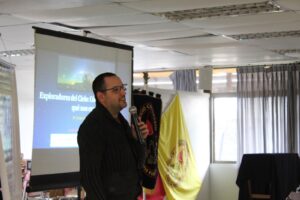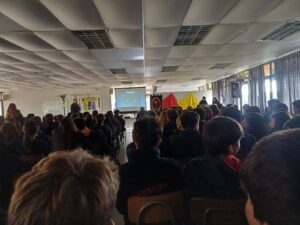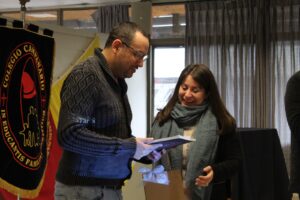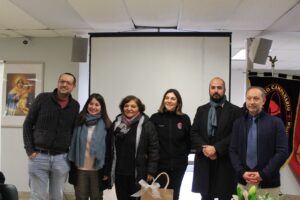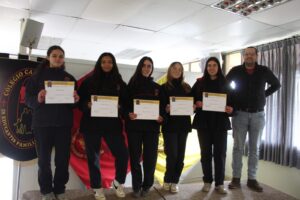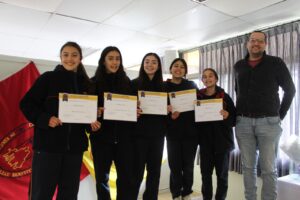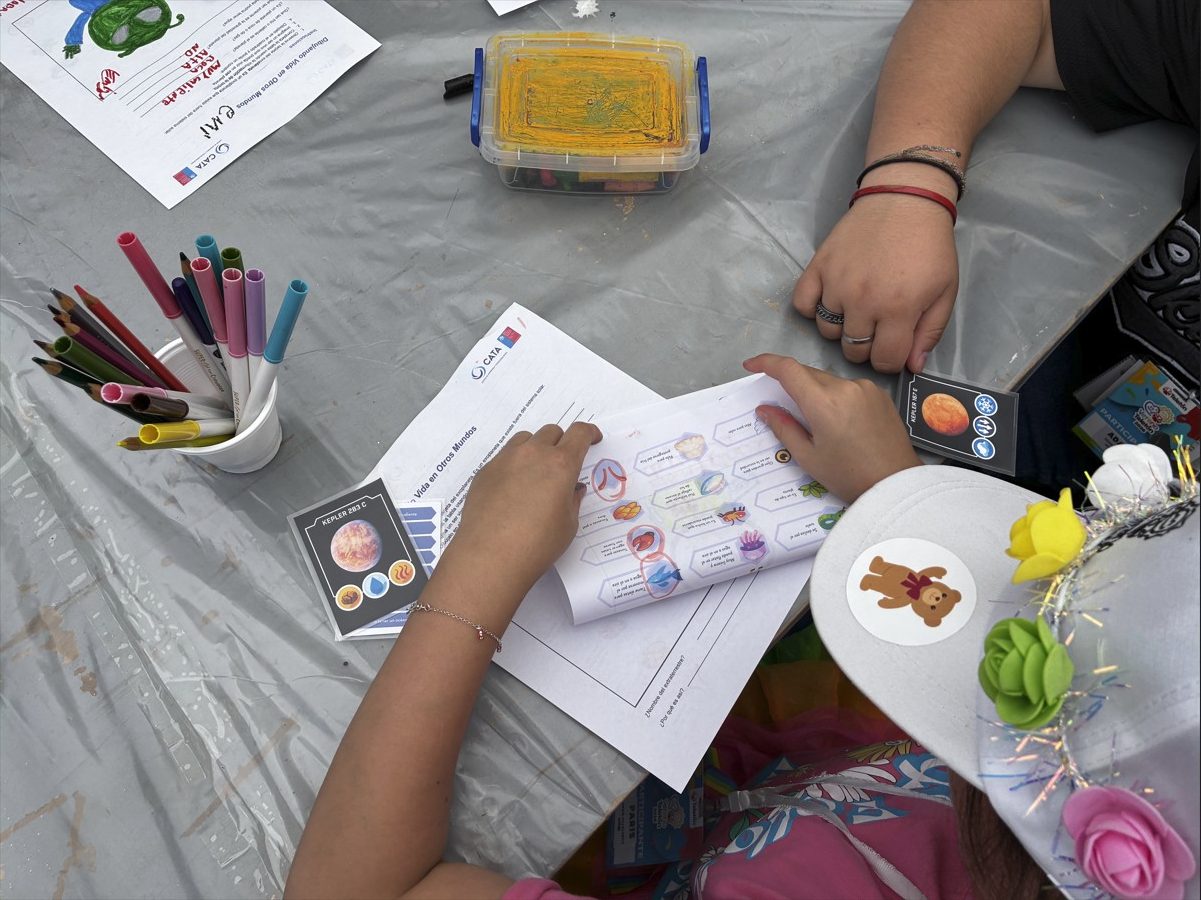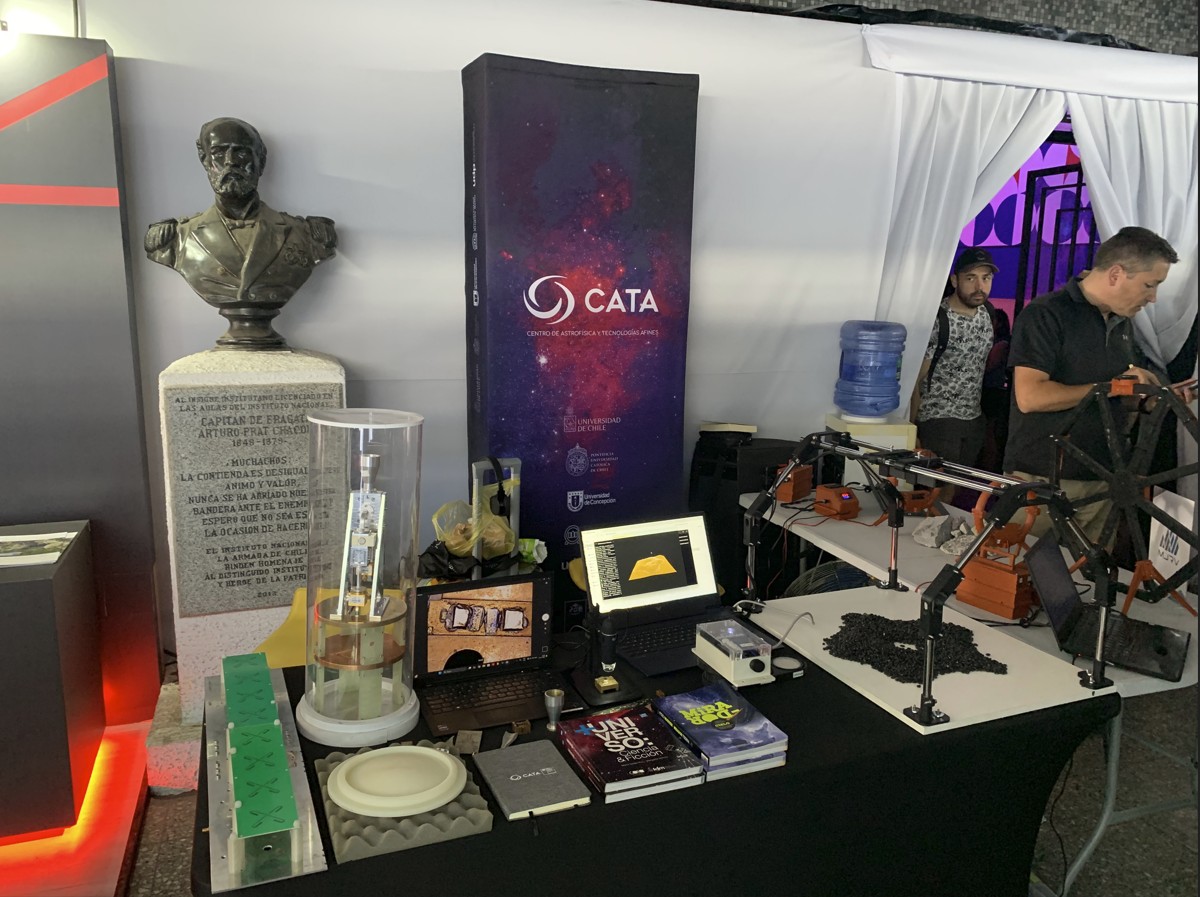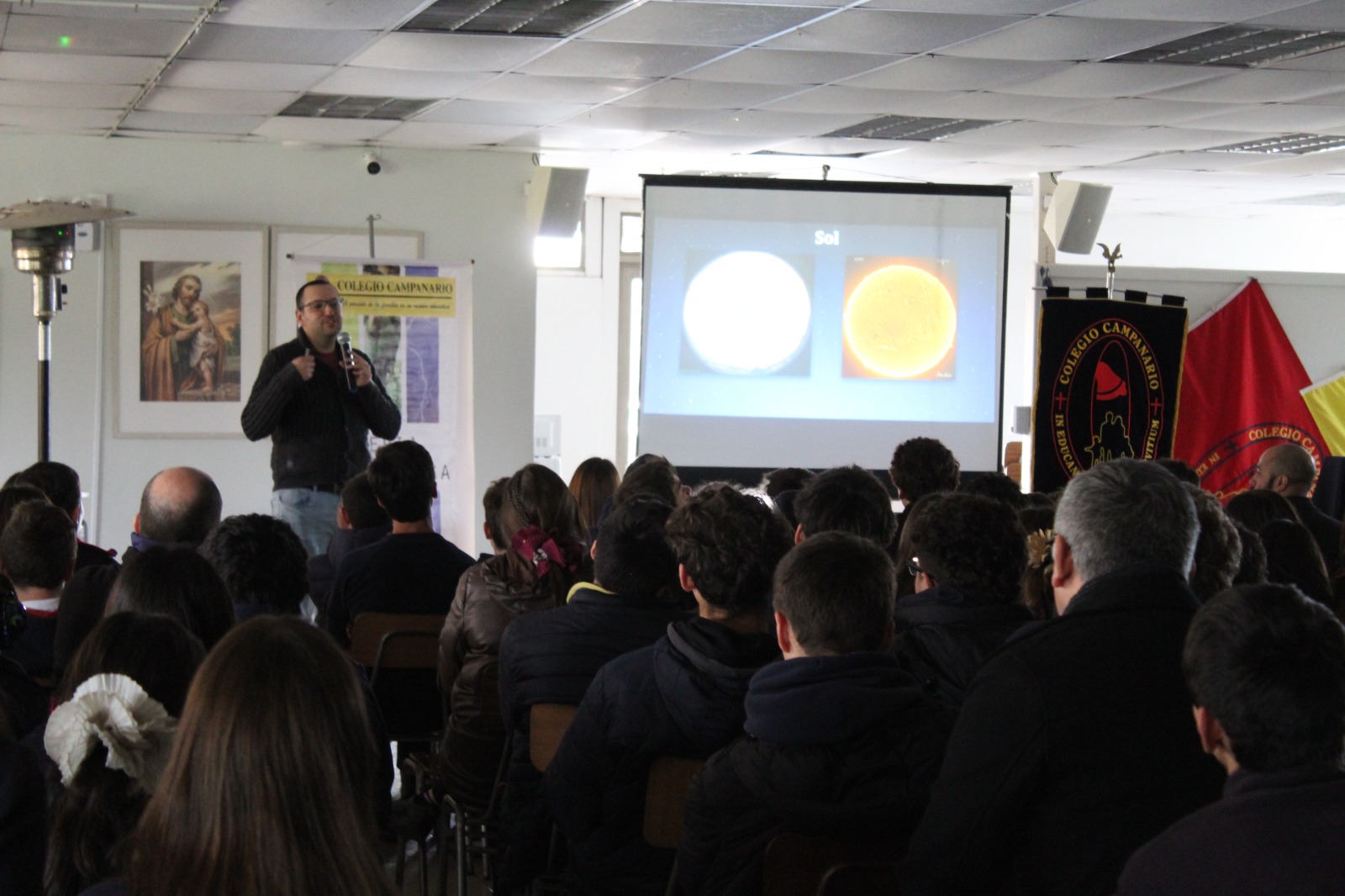
CATA brought astronomy to the Science Fair in Buin
Our Center participated in the activity organized by Colegio Campanario, where Adjunt Researcher Jorge González gave a talk to the school's students.
As part of the Science Fair at Colegio Campanario, in the municipality of Buin, the Center for Astrophysics and Related Technologies (CATA) presented the talk “Explorers of the Sky: How did it all begin and what lies ahead?”, given by Jorge González, Adjunt Researcher at the Center and professor at the Universidad Católica.
During the presentation, the astronomer took the audience on a journey through the history of astronomy, from understanding our place on Earth and in the Solar System to the most recent challenges in cosmology. “I wanted to show them everything we have learned, but also where we are headed. I told them about projects that seek to answer questions such as the existence of life on extrasolar planets, the study of black holes, and dark energy,” he said.
The talk turned into a space for dialogue, where students came up with questions that were as precise as they were creative. For the researcher, this interaction is fundamental: “It was very entertaining to see their interest. After the talk, they came up with some very good questions, some of which were quite creative. I always say that it is our moral duty to ensure that Chileans know more about astronomy than any other citizens in the world.”
The reception from the school was equally positive. Carla Lizana, Academic Coordinator, pointed out that astronomy is an area that is rarely addressed at her school, which increased the interest of students and teachers. She also appreciated that the content was presented clearly and supported by simulators and visual resources, which facilitated understanding and increased familiarity with science. According to the teacher, seeing researchers working in the field not only generates curiosity, but can also awaken scientific vocations among young people.
It is essential to be able to connect the field of research that CATA works in with educational establishments and communities, primarily because there is mutual enrichment between both parties. Secondly, it allows us to publicize advances in these areas, spark vocational interest, highlight career opportunities, and generate interest in the world in which they live, as well as raise awareness of the need for countries to develop through research and their scientists, within a framework of sustainable development,” Lizana emphasized.
With activities such as this, CATA reinforces its role as a bridge between cutting-edge research and society, bringing discoveries about the universe into classrooms and sparking an interest in science among new generations. These initiatives not only enrich the education of students and teachers, but also contribute to building a country that values and promotes scientific development.
Recent news
-
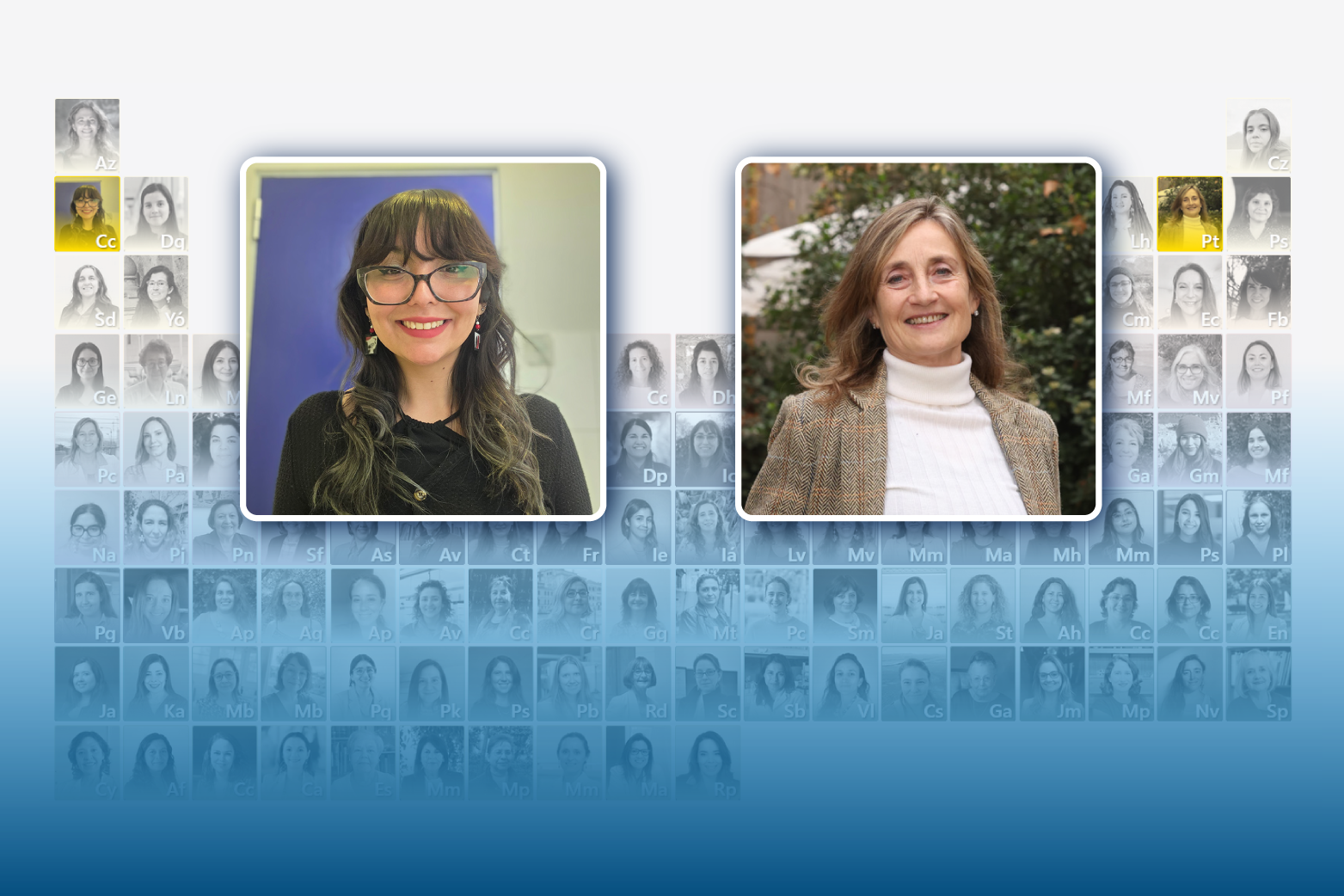 Publicado el: 17/02/2026The National Congress Library highlights CATA researchers in its second edition of Chilean Women Scientists
Publicado el: 17/02/2026The National Congress Library highlights CATA researchers in its second edition of Chilean Women Scientists -
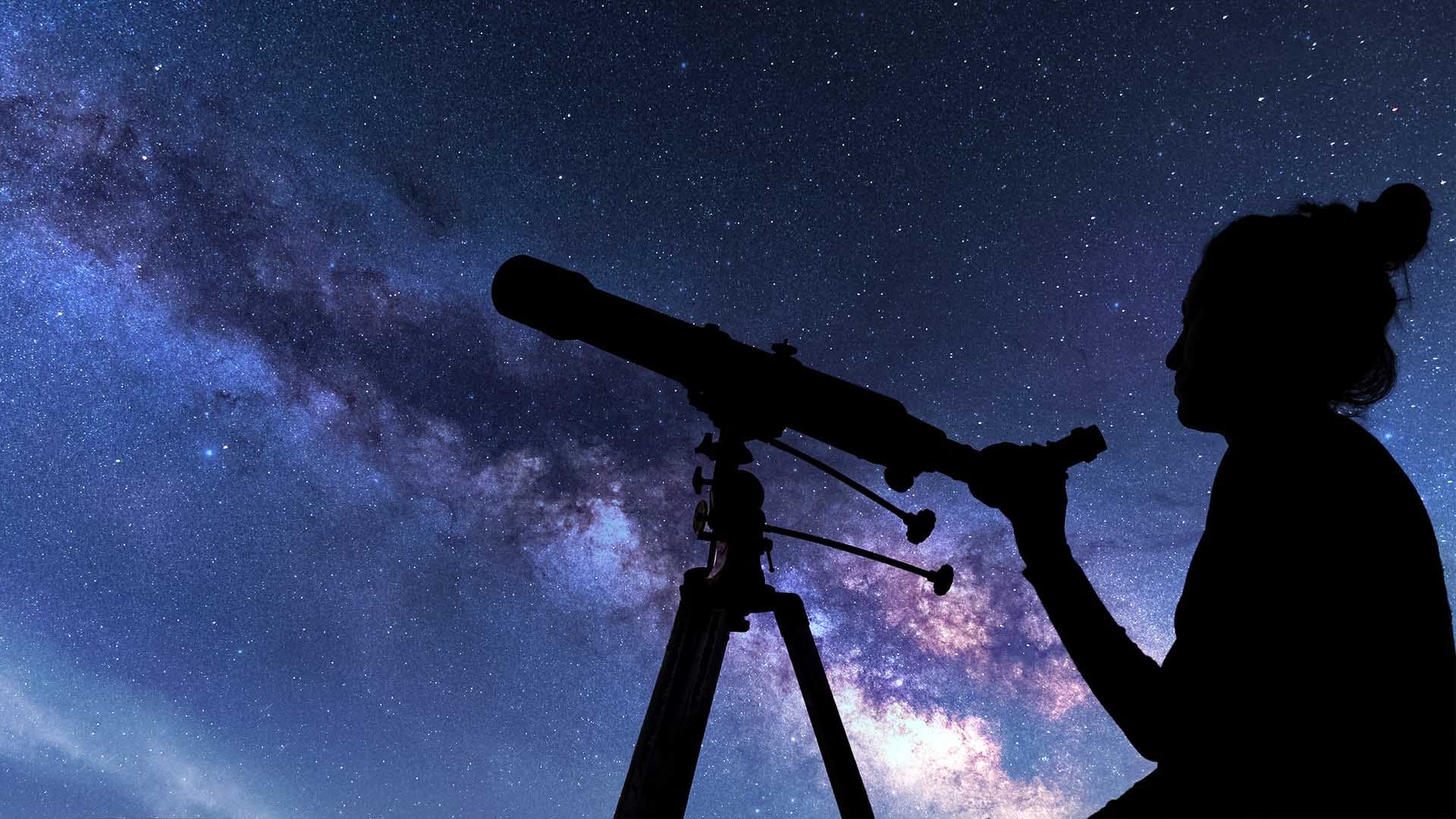 Publicado el: 11/02/2026Science with a woman’s face: gaps, vocations, and pending challenges
Publicado el: 11/02/2026Science with a woman’s face: gaps, vocations, and pending challenges -
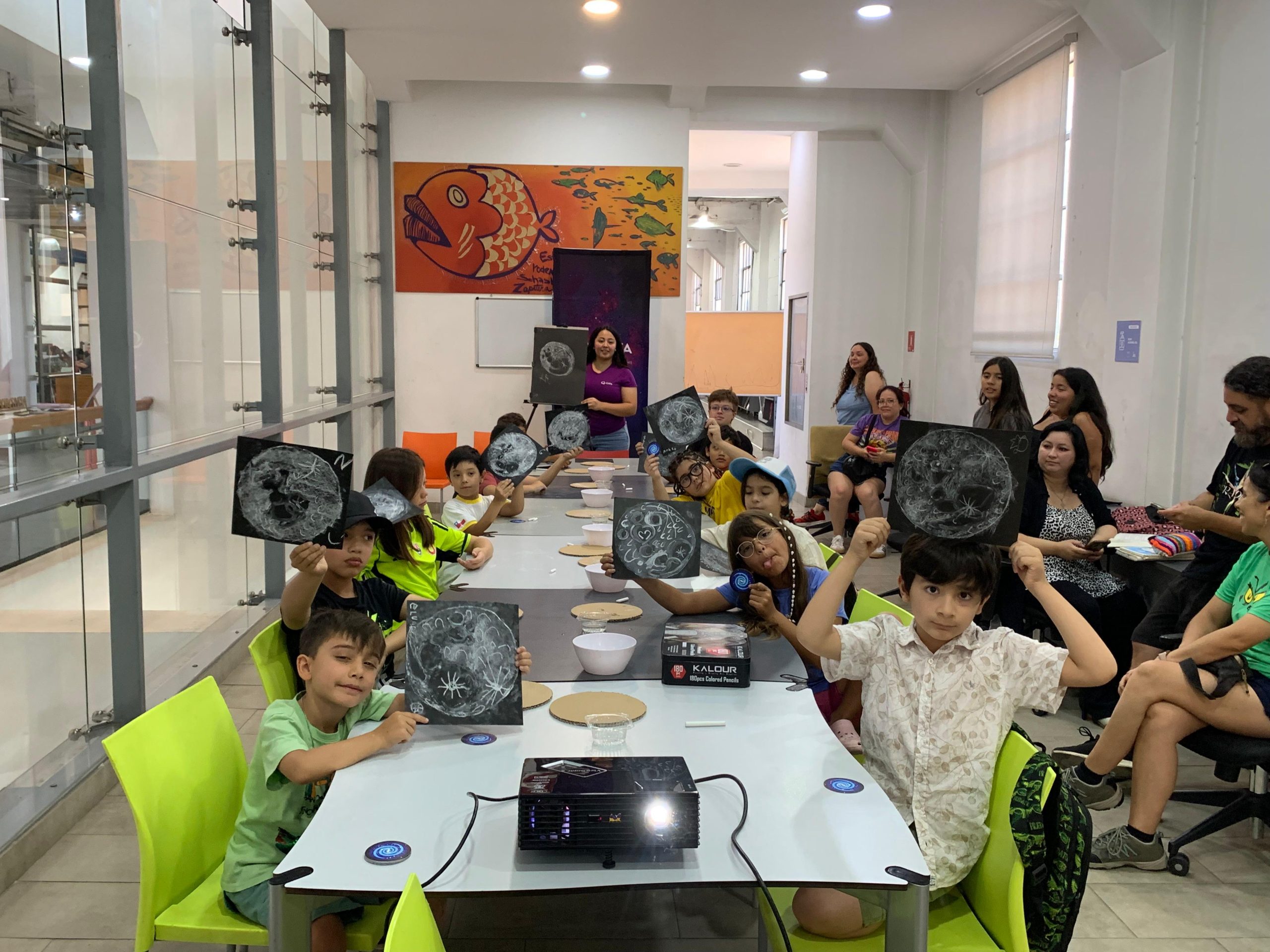 Publicado el: 09/02/2026Astronomy Day was held at the Santiago Library
Publicado el: 09/02/2026Astronomy Day was held at the Santiago Library -
 Publicado el: 30/01/2026Looking ahead to the next five years: Galaxies Area meets to share progress and strengthen research
Publicado el: 30/01/2026Looking ahead to the next five years: Galaxies Area meets to share progress and strengthen research -
 Publicado el: 29/01/2026Will Earth have two moons until 2083? The idea behind object 2025 PN7
Publicado el: 29/01/2026Will Earth have two moons until 2083? The idea behind object 2025 PN7
Categories list
- Acknowledgments 24
- Astrobiology 8
- AstroCluster 1
- Black holes 19
- Corporativo 62
- Cosmology 5
- Descubrimientos 25
- Disclosure 78
- Exoplanets 15
- Extension 6
- Galaxies 23
- Galaxies formation 7
- Inter y Transdisciplina 4
- Local Universe 17
- Publications 7
- Sin categorizar 36
- Solar System 24
- Stellar formation 8
- Technology 18
- Technology Transfer 20
